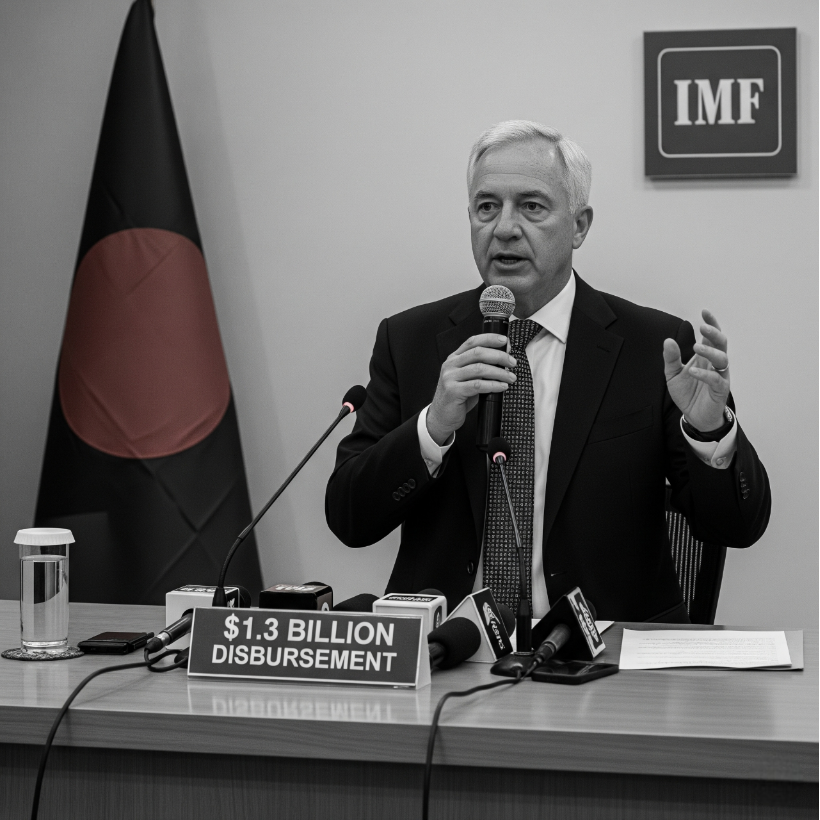Bangladesh is set to receive $1.33 billion from the International Monetary Fund (IMF) following the successful completion of the third and fourth reviews under its ongoing loan program. The disbursement includes $884 million from the Extended Credit Facility (ECF) and Extended Fund Facility (EFF), along with an additional $453 million under the Resilience and Sustainability Facility (RSF). This funding marks a crucial milestone in Bangladesh’s economic recovery efforts amid persistent challenges including inflation, a sluggish economy, and external financing pressures. The IMF also granted a six-month extension of the existing program and approved an augmentation of 567.2 million Special Drawing Rights (SDRs) to help the country address growing balance of payment needs. In its official statement, the IMF noted that Bangladesh’s overall program performance has been “broadly satisfactory.” Despite macroeconomic headwinds, the country has continued to implement key reforms in areas such such as government finance, the ability to change exchange rates, and the openness of the central bank. The IMF highlighted improvements in monetary policy implementation, digital tax systems, and progress toward energy pricing reforms as positive steps under the reform agenda. The $1.33 billion disbursement will help Bangladesh shore up its foreign exchange reserves, stabilize the financial system, and continue structural reforms. The country initially requested a $4.7 billion loan package from the IMF in 2023, as part of a broader effort to protect its economy from global shocks triggered by the Russia-Ukraine war and ongoing trade disruptions. This latest disbursement follows two earlier tranches totaling about $2.3 billion. Thanks to this recent funding, the IMF has now provided Bangladesh with more than $3.6 billion. Officials from the Ministry of Finance and Bangladesh Bank welcomed the approval, saying the funds would strengthen economic resilience and support budgetary needs ahead of the upcoming fiscal year. Economists believe the IMF’s continued support reflects confidence in Bangladesh’s ability to manage economic reforms, despite domestic and global uncertainties. The disbursement is expected to ease pressure on the country’s balance of payments, improve investor confidence, and provide breathing room for further policy actions. However, the IMF cautioned that maintaining reform momentum remains essential. Priorities include exchange rate unification, strengthening governance in the financial sector, and expanding social spending to protect vulnerable populations from the effects of inflation and climate shocks. With the IMF’s latest greenlight, Bangladesh now has both the funding and the international backing to navigate current challenges and focus on long-term economic sustainability.
IMF Approves $1.3 Billion Disbursement for Bangladesh
42
previous post


